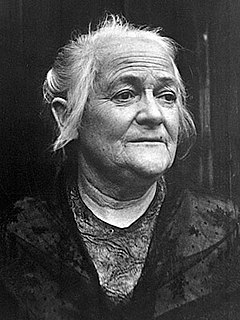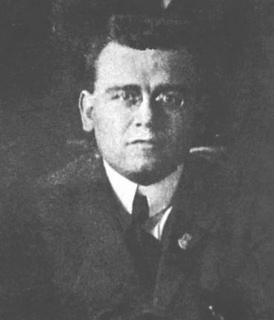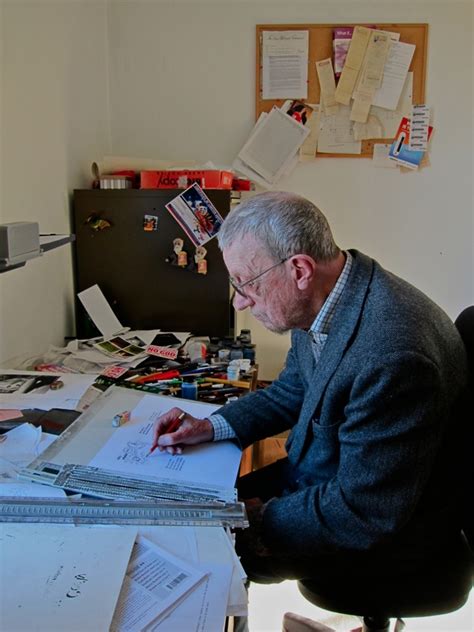A Quote by J. Stalin
...the transition from capitalism to Socialism and the liberation of the working class from the yoke of capitalism cannot be effected by slow changes, by reforms, but only by a qualitative change of the capitalist system, by revolution. Hence, in order not to err in policy, one must be a revolutionary, not a reformist.
Related Quotes
The people's community must not be a mere phrase, but a revolutionary achievement following from the radical carrying out of the basic life needs of the working class. A ruthless battle against corruption! A war against exploitation, freedom for the workers! The elimination of all economic-capitalist influences on national policy...Maintaining a rotten economic system has nothing to do with nationalism, which is an affirmation of the Fatherland. I can love Germany and hate capitalism. Not only can I, I must.
In the course of history periods of capitalism and socialism alternate with one another; capitalism is the unnatural, socialism the natural economic system... The National Socialists and the Red Front have the same aspirations. The Jews falsified the Revolution in the form of Marxism and that failed to bring fulfilment.
One of the problems with traditional anti-capitalist thought is that it defines capitalism as a totality, which encourages us to imagine another totality, socialism, which we can try to replace it with. This totalizing perspective has colonized the imagination of anti-capitalism and left us waiting for a revolution we can never have.
The degeneration of the revolution in Russia does not pass from the revolution for communism to the revolution for a developed kind of capitalism, but to a pure capitalist revolution. It runs in parallel with world-wide capitalist domination which, by successive steps, eliminates old feudal and Asiatic forms in various zones. While the historical situation in the seventeenth, eighteenth and nineteenth centuries caused the capitalist revolution to take liberal forms, in the twentieth century it must have totalitarian and bureaucratic ones.
Despite the miracles of capitalism, it doesn't do well in popularity polls. One of the reasons is that capitalism is always evaluated against the non-existent, non-realizable utopias of socialism or communism. Any earthly system, when compared to a Utopia, will pale in comparison. But for the ordinary person, capitalism, with all of its warts, is superior to any system yet devised to deal with our everyday needs and desires.
The dominant, almost general, idea of revolution - particularly the Socialist idea - is that revolution is a violent change of social conditions through which one social class, the working class, becomes dominant over another class, the capitalist class. It is the conception of a purely physical change, and as such it involves only political scene shifting and institutional rearrangements
I see myself, in terms of the question of capitalism, as I would support democratic socialism over a capitalist system, because any approach... or participatory economics, which is another great model that people like Michael Albert are putting out there... any system that encourages us to think about interdependency, and to be able to use the world's resources in a wiser way, for the good of the whole, would be better for the world than capitalism.
The People's democratic dictatorship needs the leadership of the working class. For it is only the working class that is most far-sighted, most selfless and most thoroughly revolutionary. The entire history of revolution proves that without the leadership of the working class revolution fails and that with the leadership of the working class revolution triumphs.
Anarchism is opposed to states, armies, slavery, the wages system, the landlord system, prisons, monopoly capitalism, oligopoly capitalism, state capitalism, bureaucracy, meritocracy, theocracy, revolutionary governments, patriarchy, matriarchy, monarchy, oligarchy, protection rackets, intimidation by gangsters, and every other kind of coercive institution. In other words, anarchism opposes government in all its forms.
Capitalism and socialism are two distinct patterns of social organization. Private control of the means of production and public control are contradictory notions and not merely contrary notions. There is no such thing as a mixed economy, a system that would stand midway between capitalism and socialism.
...it was always our view that in order to attain this [proletarian revolution] and the other far more important aims of the future social revolution, the working class must first take possession of the organised political power of the state and by its aid crush the resistance of the capitalist class and organise society anew.

































